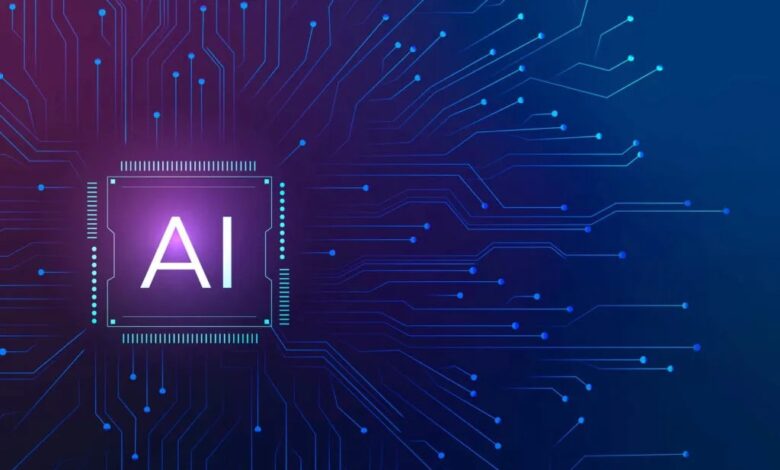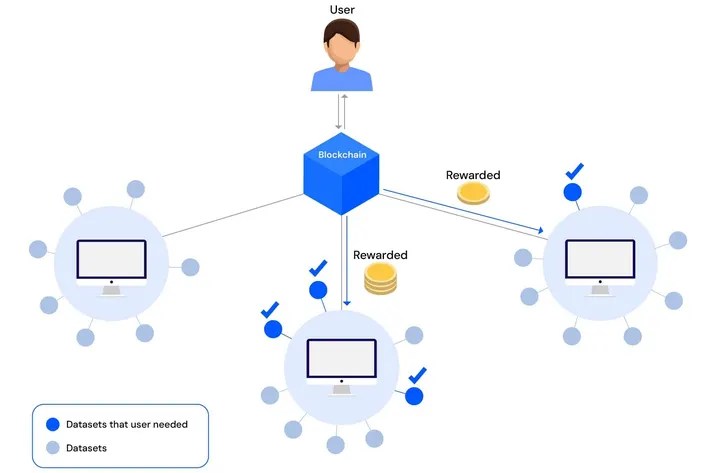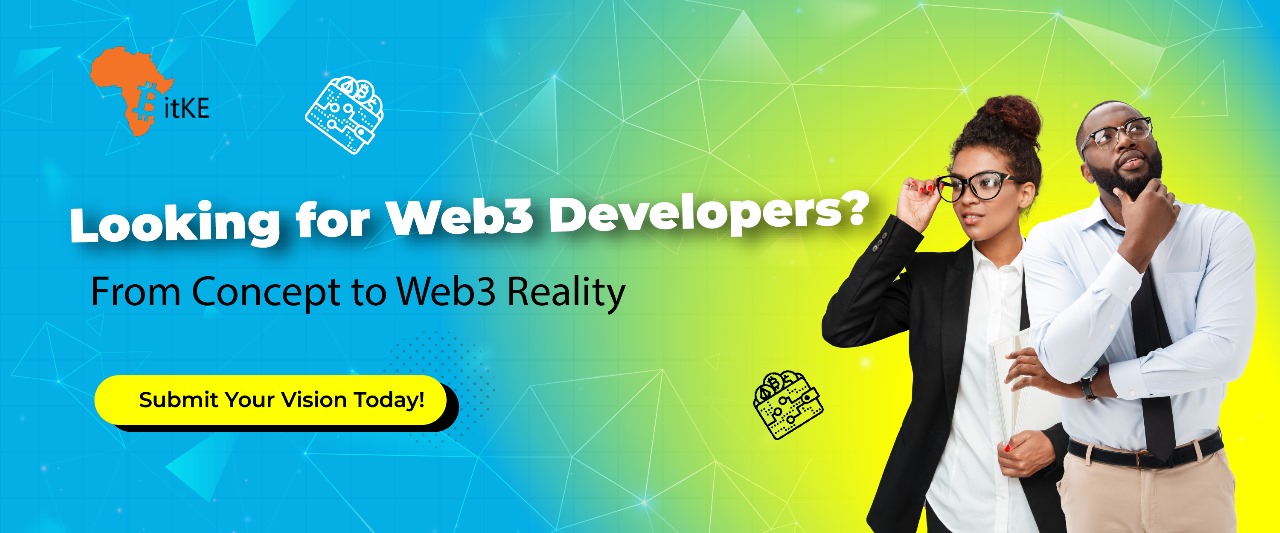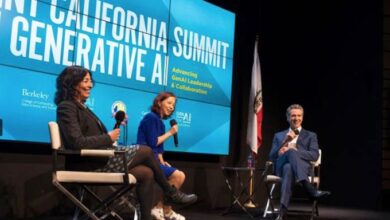ARTIFICIAL INTELLIGENCE | How Decentralized Computing and Blockchain are Paving the Way for an Inclusive Future of AI – BitKE

A decentralized artificial intelligence (DAI) system is a type of artificial intelligence (AI) solution that uses blockchain technology to distribute, process, and store data across a network of nodes.
Traditionally, the development of AI systems has remained siloed among a handful of technology vendors like Google and OpenAI who have had the financial resources necessary to develop the infrastructure and resources necessary to build and process large datasets.
However, the centralization of AI development in the industry has meant that organizations need to have significant funding to be able to develop and process the data necessary to compete in the market.
For example, the main bottleneck we currently see in AI is the GPU crunch. Deep learning, the method in artificial intelligence (AI) behind large language models (LLMs) like GPT is a lengthy and computationally intensive process on a massive scale – the more parameters LLMs have, the more GPU memory is required to operate.
While there are still some drawbacks, Web3 infrastructure holds the potential to tackle the challenges posed by AI integration and presents opportunities for innovative solutions, as we will explore below.
Decentralized AI Computing Networks

Decentralized compute networks link individuals in need of computing resources with systems possessing unused computational capabilities. This model, where individuals and organizations can contribute their idle resources to the network without incurring additional expenses, allows the network to provide more cost-effective pricing in contrast to centralized providers.
There are possibilities in decentralized GPU rendering facilitated by blockchain-based peer-to-peer networks to scale AI-powered 3D content creation in Web3 gaming. However, a significant drawback for decentralized computing networks lies in the potential slowdown during machine learning training due to the communication overhead between diverse computing devices.
Decentralized AI Data


Training data serves as the initial dataset used to teach machine learning applications to recognize patterns or meet a specific criteria. On the other hand, testing or validation data is employed to assess the accuracy of the model, and a separate dataset is necessary for validation as the model is already familiar with the training data.
There are ongoing efforts to create marketplaces for AI data sources and AI data labeling where blockchain serves as an incentive layer for large companies and institutions to improve efficiency. However, at its current early-stage development, these verticals face obstacles such as the need for human review and concerns surrounding blockchain-enabled data.
For instance, there are Service Provider (SP) compute networks specifically designed for ML model training. SP compute networks are tailored to specific use cases, typically adopting an architecture that consolidates compute resources into a unified pool, resembling a supercomputer.
SP compute networks determine cost through a gas mechanism or a parameter controlled by the community.
Decentralized Prompts


While fully decentralizing LLMs presents challenges, projects are exploring ways to decentralize prompts by encouraging contributions of self-trained techniques. This approach incentivizes creators to generate content providing economic incentive structures for more participants in the landscape.
Early examples include AI-powered chatbot platforms that have tokenized incentives for content creators and AI model creators to train chatbots, which can subsequently become tradable NFTs granting access to user-permissioned data for model training and fine-tuning. On the other hand, decentralized prompt marketplaces aim to incentivize prompt creators by enabling ownership of their data and prompts to be traded on the marketplace.
Below, we take a look at a few applications of decentralized artificial intelligence in the market today:
- Bittensor aims to create a neural internet by revolutionising the development of machine learning platforms. The project is establishing a peer-to-peer marketplace for machine intelligence where AI models can combine their intelligence, essentially creating a ‘digital hive mind.’ This innovative, decentralised method is designed to enable swift expansion and sharing of knowledge among AI systems.
- SingularityNET is a blockchain platform that allows anyone to build, share and monetise AI services. It has an internal marketplace where users can browse and pay for AI services in the platform’s native cryptocurrency, AGIX. Developers can make money from AI solutions and models without having to fully build out and develop apps for end users. Similarly, developers can buy AI solutions and models to use in their applications.
- Ocean Protocol is an Ethereum-based platform that allows businesses and individuals to exchange and monetise data and data-based services. This might involve making data available to researchers and startups without the data being relinquished by the data holders.
Web3 offers a promising path towards a more inclusive future for artificial intelligence. By democratizing access to computing resources, data, and AI development tools, decentralized solutions empower individuals and organizations of all sizes to participate in and benefit from AI innovation.
While challenges remain, ongoing advancements and initiatives like decentralized AI computing networks, AI data marketplaces, and collaborative AI models signal a transformative shift towards a more equitable and accessible AI landscape.
________________________________________





